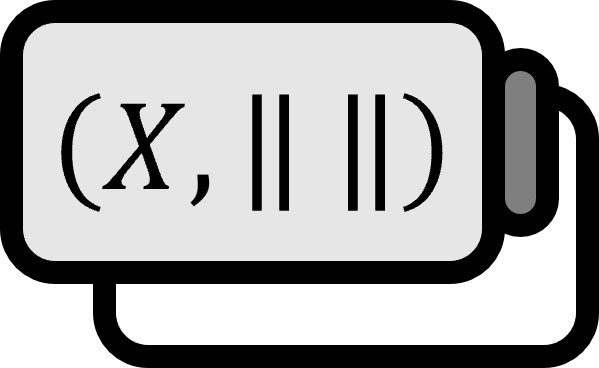Compact Integral Operators
Theorem1
For a given compact interval $J = [a, b]$, let $K$ be a function continuous on $J \times J$. Let $X = C[a, b]$ be the space of continuous functions. Then, the integral operator $T : X \to X$ with kernel $K$ is a compact linear operator.
$$ (Tx)(s) = \int\limits_{a}^{b} K(s, t) x(t) dt,\qquad \forall x \in X $$
Proof
Since the integral operator is linear and bounded, we only need to show it is compact.
A linear operator $T : X \to Y$ is called a compact operator if for every bounded subset $M \subset X$, $\overline{T(M)}$ is compact implies $T$.
Norm of Continuous Function Space
The norm of the continuous function space $C[a, b]$ is defined as follows:
$$ \left\| x \right\| := \max\limits_{t \in [a, b]} \left| x(t) \right|,\qquad x \in C[a, b] $$
Assume that the sequence $X$ in $\left\{ x_{n} \right\}$ is bounded. In other words, there exists $c$ such that for all $n \in \mathbb{N}$, $\left\| x_{n} \right\| \le c$ holds. Let $y_{n} = Tx_{n}$. Since $T$ is bounded, then
$$ \left\| y_{n} \right\| = \left\| Tx_{n} \right\| \le \left\| T \right\| \left\| x_{n} \right\| $$
Therefore, $\left\{ y_{n} \right\}$ is also bounded. Now, we will show that $\left\{ y_{n} \right\}$ is equicontinuous. Since the kernel $K$ is continuous and $J \times J$ is compact, $K$ is uniformly continuous. Hence, for any given $\varepsilon \gt 0$, there exists $\delta \gt 0$ that satisfies the following:
$$ \forall s_{1}, s_{2} \in J \text{ and } t \in J \qquad \left| s_{1} - s_{2} \right| \lt \delta \implies \left| K(s_{1}, t) - K(s_{2}, t) \right| \lt \frac{\varepsilon}{(b-a)c} $$
Therefore, for every $s_{1}, s_{2}$ and all $n \in \mathbb{N}$, the following holds:
$$ \begin{align*} \left| y_{n}(s_{1}) - y_{n}(s_{2}) \right| &= \left| \int\limits_{a}^{b} K(s_{1}, t)x_{n}(t) dt - \int\limits_{a}^{b} K(s_{2}, t)x_{n}(t) dt \right| \\ &= \left| \int\limits_{a}^{b} \left[ K(s_{1}, t) - K(s_{2}, t) \right] x_{n}(t) dt \right| \\ &\le \int\limits_{a}^{b} \left| K(s_{1}, t) - K(s_{2}, t) \right| \left| x_{n}(t) \right| dt \\ &\le \int\limits_{a}^{b} \frac{\varepsilon}{(b-a)c} \cdot c dt \\ &= \varepsilon \end{align*} $$
As a result, $\left\{ y_{n} \right\}$ is equicontinuous. Since a bounded equicontinuous sequence of functions has a convergent subsequence, $\left\{ y_{n} \right\}$ has a convergent subsequence.
Let $X$ and $Y$ be normed spaces. Let $T : X \to Y$ be a linear operator. Then, the following two propositions are equivalent:
- $T$ is a compact operator.
- $T$ maps “every bounded sequence in $X$” to “a sequence in $Y$ that has a convergent subsequence”.
Therefore, since an arbitrary bounded sequence $\left\{ x_{n} \right\}$ is mapped by $T$ to a sequence $\left\{ y_{n} \right\}$ that has a convergent subsequence, $T$ is a compact operator.
■
Erwin Kreyszig, Introductory Functional Analysis with Applications (1978), p454-455 ↩︎
